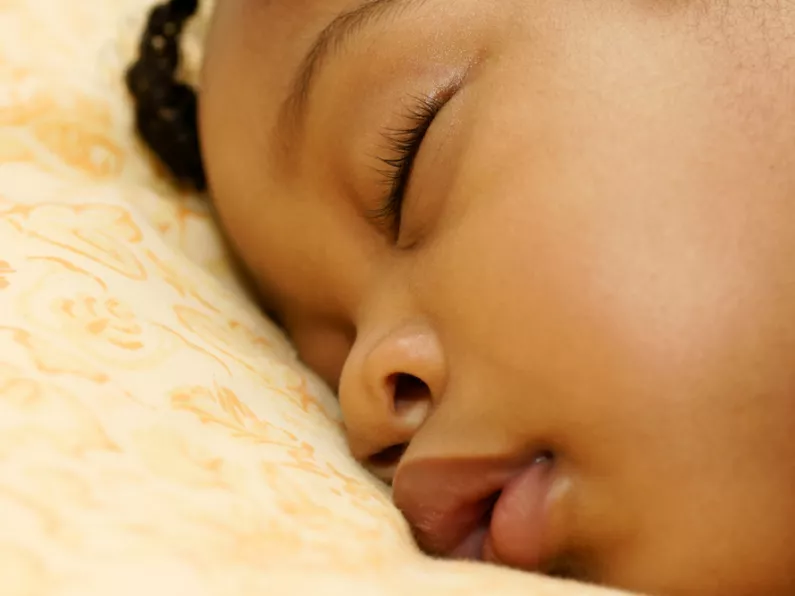Part of our mission here at Caribbean Moms to empower and support moms at every stage of their journey - so, here are 11 postpartum changes we wish we'd known more about.
The fourth trimester - the three-month period after you've given birth - is a mixed bag of emotions.
Of course you're overjoyed at becoming a mom, soaking in every inch of your newborn.
But those weeks can also be hugely overwhelming as you deal with physical recovery from birth, lack of sleep, a hormone crash, and keeping your little one alive!
While all the above is well documented, what we don't hear a lot about are the changes - both physical and mental - that can be hard to deal with and accept.
And no matter how many times people tell you that you've done a wonderful thing and brought new life into the world, the internal struggle is real.
11 postpartum changes we wish we'd known more about
So here are 11 postpartum changes we wish we'd known more about.
- Postpartum bleeding: It is normal to bleed from your vagina after having a baby. It's basically how your body gets rid of the extra blood and tissue in your uterus that helped your baby grow. This bleeding can last for up to 6 weeks. It's usually heaviest straight after the birth and reduces a lot in the days and weeks that follow.
- C-section scar/perineal stitches: Your c-section scar will be much smaller and neater than you'd have imagined, but it's still a scar and that can lead to sensitivity about that area. Perineal stitches repair a vaginal or perineal tear which is a rip in the skin and sometimes the tissue or muscle around your vagina and perineum, the area located between the vaginal and anal opening. There are varying degrees of tear but they will all hurt and take time to heal.
- Pelvic floor leaking: This is a symptom many women are too embarrassed to talk about but it's actually extremely common postpartum. Your muscles around the bladder and pelvis and stretched and weakened from pregnancy and birth and this can make it difficult for you to control your pee. You might pee yourself a little while laughing, sneezing, coughing or exercising, or you may suddenly discover that you can no longer 'hold it in'. You can visit a women's health physio, do your kegel exercises, and obviously consult your doctor.
- Sore boobs: Your breasts will become engorged in the days after giving birth, even if you're not breastfeeding. And if you are breastfeeding, they'll be tender and you could have cracked nipples. Cold cabbage leaves in your bra can bring relief. And try nipple cream or cooling pads.
- Hair loss: Just when you've gotten used to the beautiful thick main of hair pregnancy brought you, it'll start falling out in clumps postpartum. But rest assured, experts say it's not actual hair loss, but more excessive shedding caused by falling estrogen levels. Most women see their hair return to its normal fullness by their child’s first birthday. Here are some tips on how to look after your hair postpartum.
- Exhaustion: This is one of the biggest challenges you'll face postpartum. You'll be exhausted from a third trimester of little sleep, sleeplessness in hospital around the birth, and then the demands of a newborn who doesn't know night from day. You need to sleep when the baby sleeps, lean on others for support, and stock up on caffeine!
- Postnatal depression: Postpartum depression is common yet it's not talked about enough. People often put their feelings down to the 'baby blues', but PND is very different and needs professional help. Signs and symptoms include crying a lot, anger, feeling distant from your baby, not wanting to get out of bed, trouble sleeping. Speak to your doctor straight away if you're experiencing any of these feelings.
- Stretch marks: Stretch marks are common in pregnancy and their appearance leaves a lot of women very paranoid about showing their belly. A stretch mark is a type of scar that develops when our skin stretches or shrinks quickly. Don't use any creams or ointments on your belly without first consulting your doctor. A popular oil is Bio Oil.
- Weight gain: Weight gain in pregnancy varies greatly. Most pregnant women gain between 10kg and 12.5kg, putting on most of the weight after week 20. Much of the extra weight is due to your baby growing, but your body will also be storing fat, ready to make breast milk after your baby is born. Don't expect your body to miraculously bounce back once you've given birth, and don't put pressure on yourself to slim down. Some women never go back to their pre-pregnancy weight, or find that their hips are wider than before. And that's OK! As long as you maintain a healthy diet and exercise regularly, you are looking after you.
- Diastasis recti: Diastasis recti is the partial or complete separation of the rectus abdominis muscles, which meet at the midline of your stomach. Diastasis recti is very common during and following pregnancy because the uterus stretches the muscles in the abdomen to accommodate your growing baby. Some women refer to this as their 'pouch' but it can cause body issues in some women.
- Vaginal dryness: Postpartum vaginal dryness is common and normal, particularly for those who are breastfeeding. It results from low estrogen levels, and those who are nursing have lower levels of estrogen than those who are not nursing. It can make sex uncomfortable or painful and may cause some light bleeding. Speak to your doctor if you're experiencing, or think you have, vaginal dryness.







